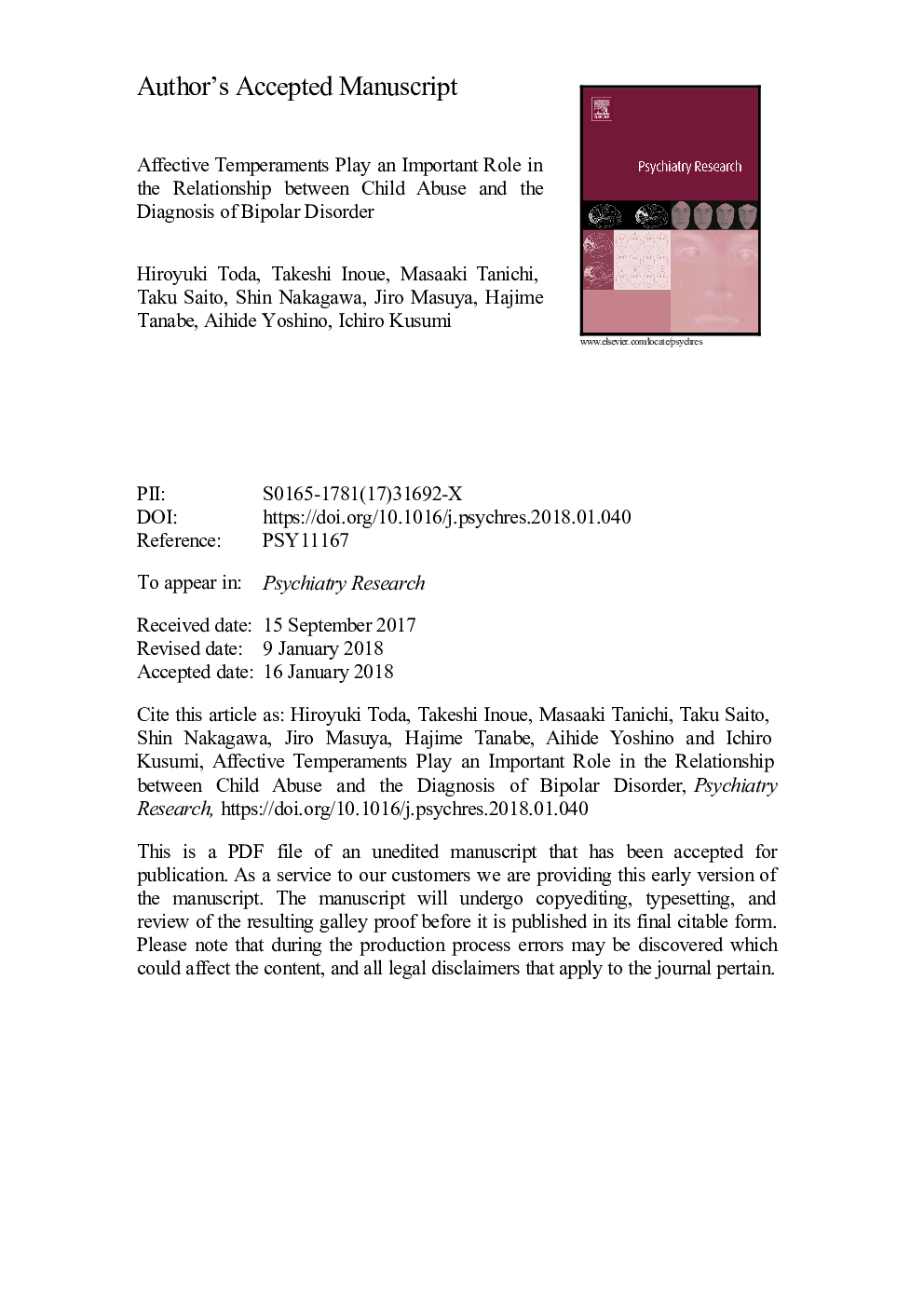| Article ID | Journal | Published Year | Pages | File Type |
|---|---|---|---|---|
| 6811487 | Psychiatry Research | 2018 | 32 Pages |
Abstract
In previous studies, various components such as environmental and genetic factors have been shown to contribute to the development of bipolar disorder (BD). This study investigated how multiple factors, including child abuse, adult life events, and affective temperaments, are interrelated and how they affect the diagnosis of BD. A total of 170 healthy controls and 75 BD patients completed the following self-administered questionnaires: the Patient Health Questionnaire-9 evaluating the severity of depressive symptoms; the Child Abuse and Trauma Scale (CATS) evaluating child abuse; the Temperament Evaluation of Memphis, Pisa, Paris, and San Diego autoquestionnaire (TEMPS-A) evaluating affective temperaments; and the Life Experiences Survey (LES) evaluating negative and positive adult life events. The data were subjected to univariate analysis, multivariable analysis, and structural equation modeling. The structural equation modeling showed that the diagnosis of BD was indirectly predicted by the neglect and sexual abuse scores of the CATS through four affective temperaments (depressive, cyclothymic, irritable, and anxious) of the TEMPS-A and directly predicted by these four affective temperaments. This study suggested that affective temperament plays an important role as a mediator in the influence of child abuse on BD diagnosis.
Keywords
LESTCI-RSTAI-YRMSEATLIDSM-IV-TRPHQ-9YMRSCFIMDDTEMPS-AMajor depressive disorderbipolar disorderAffective temperamentDiagnostic and Statistical Manual of Mental Disorders, Fourth Edition, Text RevisionStressful life eventRoot mean square error of approximationTucker-Lewis indexComparative Fit IndexStructural equation modelSEMStructural equation modelingHamilton Depression Rating ScaleYoung Mania Rating ScaleHAMDPatient Health Questionnaire-9Child abuseCats
Related Topics
Life Sciences
Neuroscience
Biological Psychiatry
Authors
Hiroyuki Toda, Takeshi Inoue, Masaaki Tanichi, Taku Saito, Shin Nakagawa, Jiro Masuya, Hajime Tanabe, Aihide Yoshino, Ichiro Kusumi,
